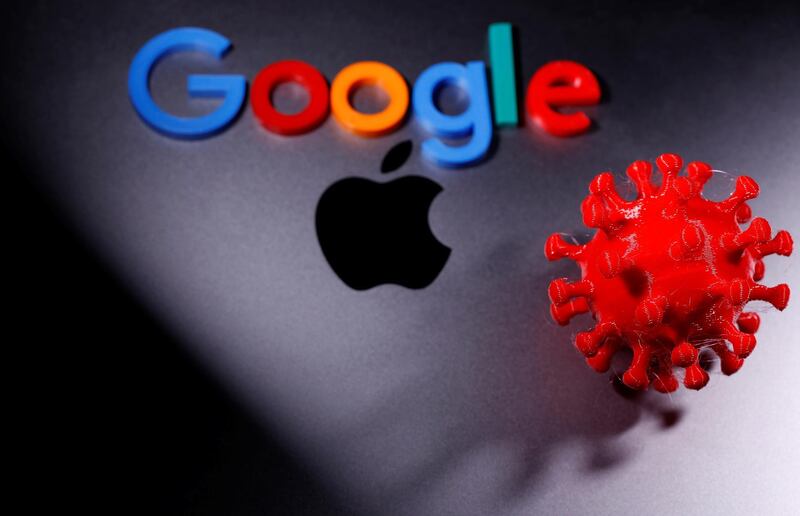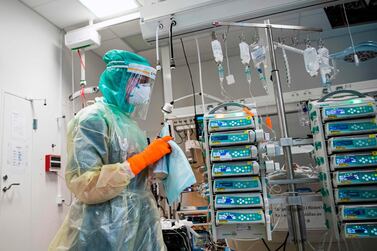Nearly 2 billion mobile phone users around the world will be unable to access the Covid-19 contact tracing technology proposed by Apple and Google to stem the spread of contagion, according to analysts.
Lower mobile internet penetration rates, outdated operating systems, old smartphones and privacy concerns are the main factors hindering the effectiveness of the new smartphone-based system expected to go live next month.
"Most of these [two billion] users with the incompatible devices hail from the lower-income segment or from the elderly segment, which actually are more vulnerable to the virus," Neil Shah, vice president of research at Counterpoint Research, told The National.
“Many users … either they are too old to use a smartphone or they hail from a lower-income group to afford [the] latest handset and means to upgrade their existing phone.”
Apple and Google formed a rare partnership earlier this month to introduce a system to trace contact people may have had with carriers of the virus.
The companies will introduce the software that allows Google’s Android and Apple’s iOS smartphones to exchange information using apps from public health authorities next month. Following that, the tech giants will add Bluetooth-enabled contact tracing directly on to their operating systems – a move that could limit the technology’s reach, especially in countries where people have outdated smartphones or limited tech literacy.
"Bluetooth-based limitations of the platform will reduce its scope to prove useful to a global audience," Matthew Kendall, chief telecoms analyst at the Economist Intelligence Unit, said.
Countries with a high penetration of Bluetooth-enabled smartphones, a culture of willing social participation and healthcare systems that can better coordinate information-sharing may be best placed to benefit, said Mr Kendall.
The new technology has the potential to reach a huge portion number of people, but only if users agree to opt into the system. Between them, iOS and Android platforms have around 3 billion users, about one third of the world's population.
Last year, 260 million people connected to the mobile internet for the first time, bringing the total to just under 3.8 billion people globally (49 per cent of the population), according to the Global System for Mobile Communications Association, which hosts the annual Mobile World Congress in Barcelona.
However, this growth has not been equally distributed.
While three-quarters of the population are connected to the mobile internet in North America and Europe, penetration is only around 40 per cent across Asia Pacific and the Middle East and North Africa and as low as 26 per cent in Sub-Saharan Africa.
Convincing users to upgrade their smartphones' operating system is also crucial to ensure the success of this initiative. Analysts say this is particularly problematic in the case of Android users.
“Android users don’t upgrade to new OS that frequently when compared to the iOS users,” Joao Sousa, senior partner at Delta Partners, said.
“Some people simply don’t know how to upgrade, while some are afraid that the new OS will not work well on their old devices... moreover, unlike Apple, there is usually no pressure from Android on its users to upgrade to new software that often.”
At this early stage, there are perhaps still a lot of discussions to be held between national governments and tech companies to try and iron out some of the problems this sort of proposition faces, added Mr Kendall.
“But in the midst of a pandemic, any way in which we can utilise technology to minimise the spread and suffering caused by the virus should, in my view, be welcomed.”
Surveillance, privacy, the potential for false positives and the scope for troublemakers to overwhelm the platform and render it unusable are all legitimate concerns assailing the new platform, noted the London-based Economist Intelligence Unit.
But if done properly, through partnerships with healthcare professionals to ensure that diagnosis is accurate and patient data is protected, it would allow such tracing apps to be effective in the fight against coronavirus, it added.
There have now been more than 2.4 million reported cases of Covid-19 globally and over 171,000 deaths as of Tuesday, according to Johns Hopkins University, which is tracking its spread. More than 625,000 have recovered from the virus.








